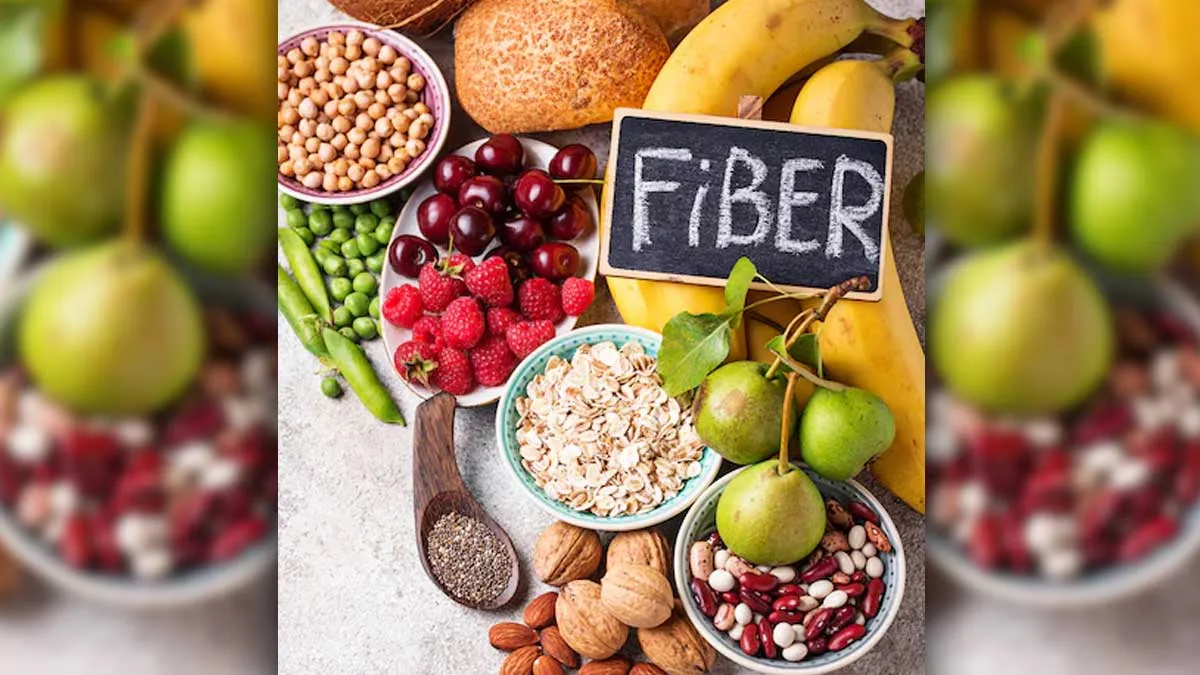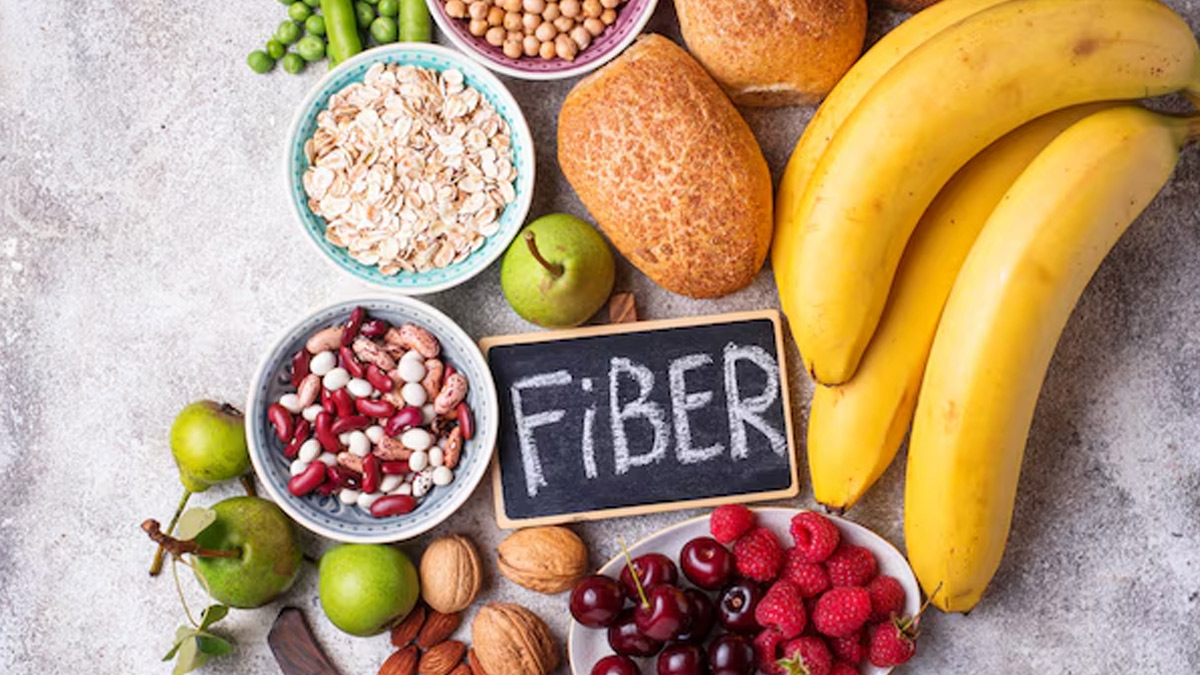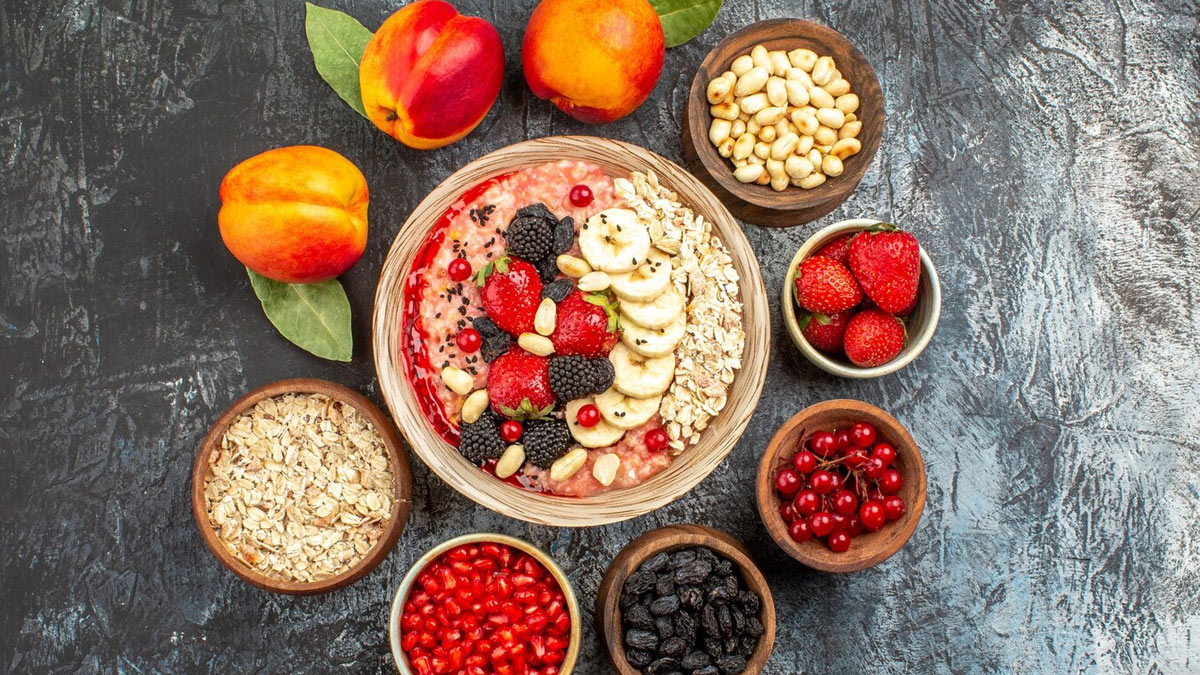
When it comes to digestive health, fibre-rich foods are your best friend. Not only do they support a healthy gut microbiome, but they also add bulk to stool, aid in regular bowel movements, and also prevent constipation. This is one of the reasons why fibre is considered good for people with Irritable Bowel Syndrome with Constipation (IBS-C). IBS-C is a functional gastrointestinal disorder characterised by abdominal pain and bowel movements that are hard and lumpy. It is a subtype of IBS, which also includes IBS with diarrhoea (IBS-D).
Table of Content:-
However, when you're choosing your fibres for IBS, there are a few considerations to make. Dr Piyush Ranjan, Vice-Chairperson, Institute Of Liver Gastroenterology and Pancreatico-Biliary Sciences, Sir Gangaram Hospital, Delhi, helps understand these better.
Also Read: Is It Normal To Get Headaches With IBS? A Gastroenterologist Decodes
Types Of Fibre

There are two main types of fibre found in food: soluble and insoluble. Both are important for overall health and play different roles in digestion.
Soluble fibre dissolves in water and forms a gel-like substance in the digestive system. This type of fibre can help lower cholesterol and blood sugar levels. Foods rich in soluble fibre include oats, beans, lentils, apples, and citrus fruits.
Insoluble fibre, on the other hand, does not dissolve in water and adds bulk to the stool, promoting regular bowel movements and preventing constipation. Good sources of insoluble fibre include whole wheat products, wheat bran, vegetables, and nuts.
Which Type Of Fibre Works Best For IBS-C?

According to Dr Ranjan, soluble fibre is generally more effective and better tolerated in IBS-C. This is because soluble fibre helps soften stools and regulate bowel movements, making them easier to pass.
"Psyllium (ispaghula husk) is the most studied and recommended soluble fibre. It improves stool frequency and consistency and may reduce overall IBS symptoms," he adds. A 2008 study published in the American Journal of Gastroenterology also concluded that soluble fibre, particularly ispaghula, also known as psyllium, is effective in the treatment of IBS.
Additionally, partially hydrolysed guar gum (PHGG) and methylcellulose are other soluble options with low fermentability, making them gentler on the gut, the doctor adds.
He further recommends avoiding bran and other high insoluble fibre supplements, as they can exacerbate bloating, gas, and discomfort.
Side Effects Of Excessive Fibre Intake
Excessive fibre intake can lead to uncomfortable digestive issues, such as bloating, gas, flatulence, stomach cramps, and worsened constipation, shares Dr Ranjan. While fibre is generally beneficial for health, consuming too much, too quickly, can disrupt the digestive system.
Additionally, very high fibre intake can interfere with the absorption of certain minerals like iron, zinc, and calcium.
Also Read: IBS, GERD, And IBD: What Is The Difference And Why It Matters To Know
Foods People With IBS-C Should Avoid

When it comes to IBS patients, doctors often recommend a low-FODMAP diet. FODMAP stands for Fermentable Oligo-, Di-, Mono-saccharides And Polyols, which are a group of short-chain carbohydrates and sugar alcohols that are poorly absorbed in the small intestine and can be fermented by bacteria in the large intestine. Such mechanisms can potentially cause digestive issues like bloating, gas, and abdominal pain in some individuals, particularly those with IBS.
Certain FODMAP-rich foods and gas-producing items can exacerbate symptoms. These include:
- High-fructan foods: onions, garlic, wheat
- Lactose: milk, soft cheeses
- Fructose: apples, pears, honey
- Polyols: sorbitol, mannitol (in sugar-free gums, stone fruits)
- Insoluble fibre-rich foods: raw cabbage, legumes, bran
How To Safely Consume Fibre When You Have IBS
If you have IBS and are planning to introduce or include more soluble fibre-rich foods, here’s how to do it safely and more effectively.
- Start low: Begin with small amounts (e.g., ½ tsp psyllium once daily).
- Go slow: Increase every 3–5 days based on tolerance.
- Hydrate well: At least 1.5–2 L of fluids per day.
- Choose low-FODMAP soluble fibres: Psyllium, PHGG
- Use cooked/steamed forms: Softens insoluble fibre, reducing GI irritation.
- Monitor symptoms: keep a food/symptom diary.
Conclusion
IBS is an extremely uncomfortable gastrointestinal disorder that causes various issues, including constipation. Including fibre-rich foods is very crucial to maintain gut health, especially with IBS. However, it is also important to know which type of fibre works best to manage the condition. Experts recommend soluble fibre, as it dissolves in water to form a gel-like substance in the digestive system. These can also help lower cholesterol and blood sugar levels, slow down digestion, and potentially aid in weight management. For more information, always consult a doctor and follow their guidance.
Also watch this video
How we keep this article up to date:
We work with experts and keep a close eye on the latest in health and wellness. Whenever there is a new research or helpful information, we update our articles with accurate and useful advice.
Current Version